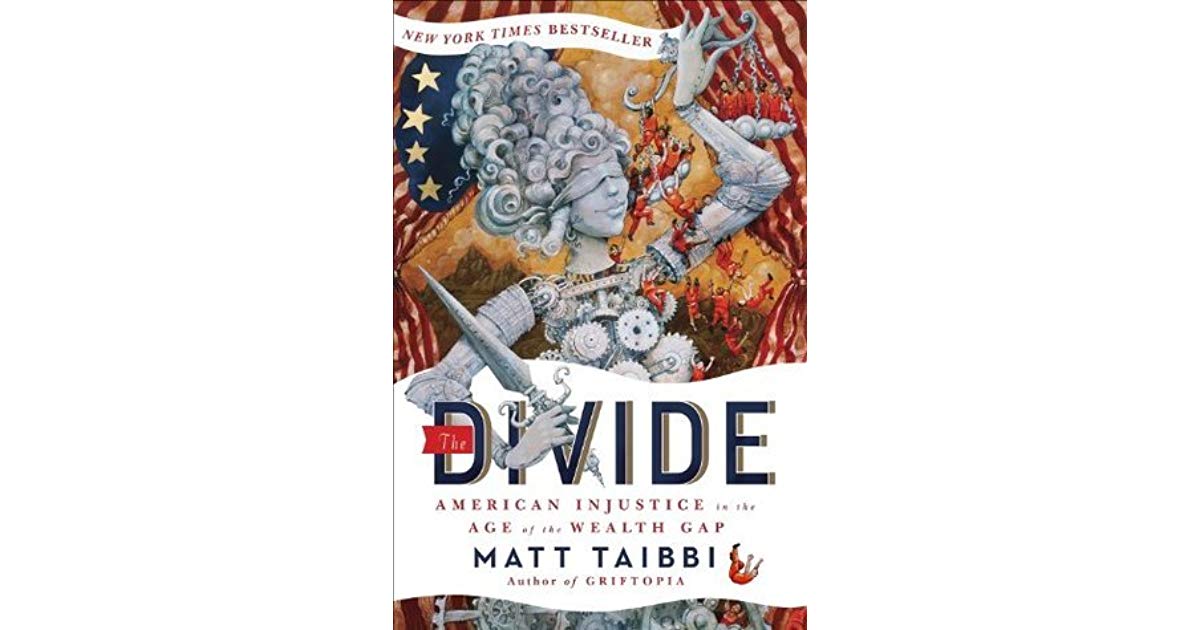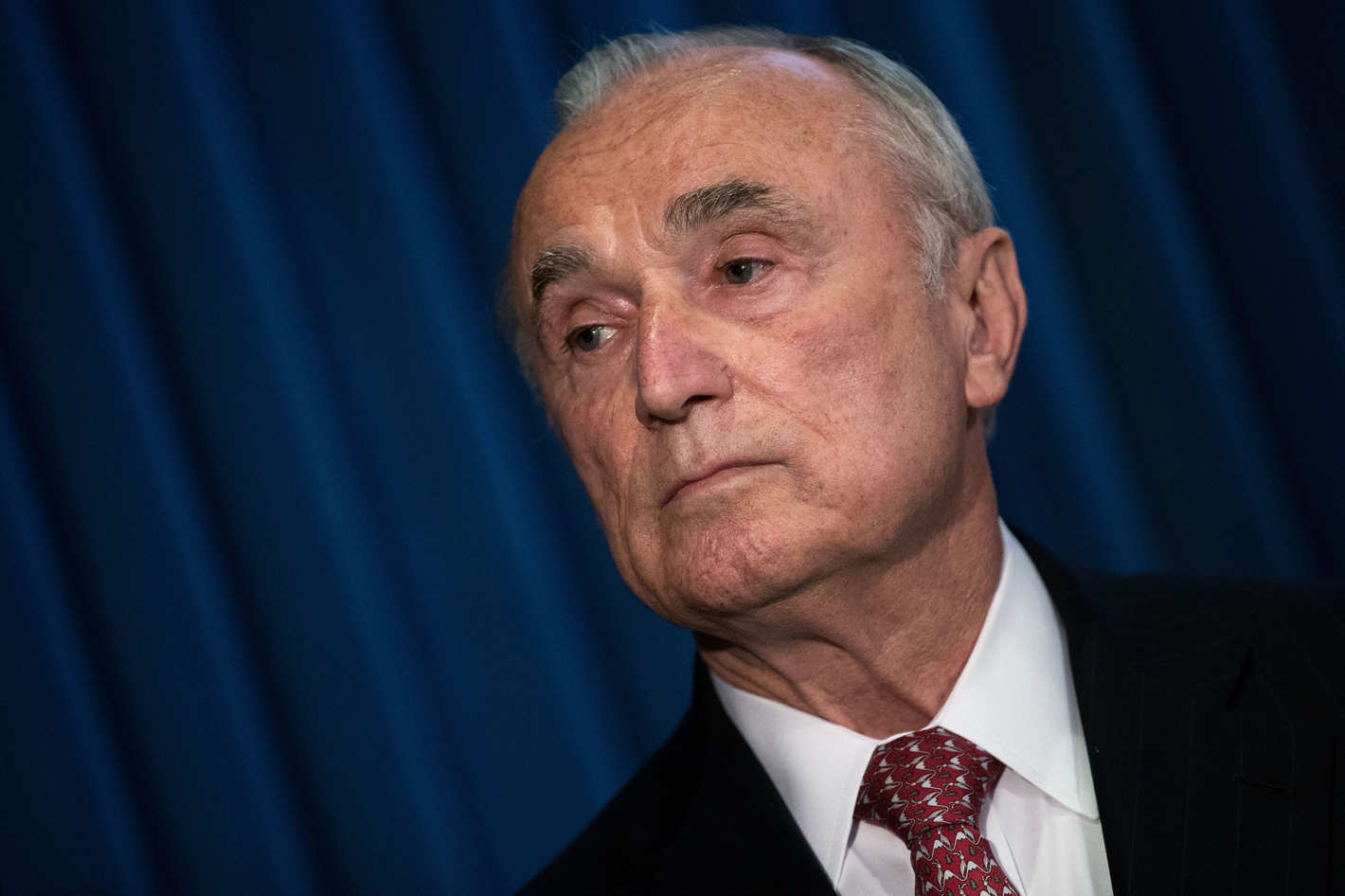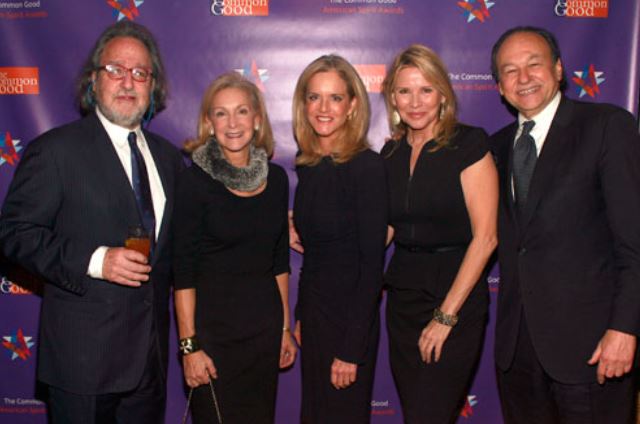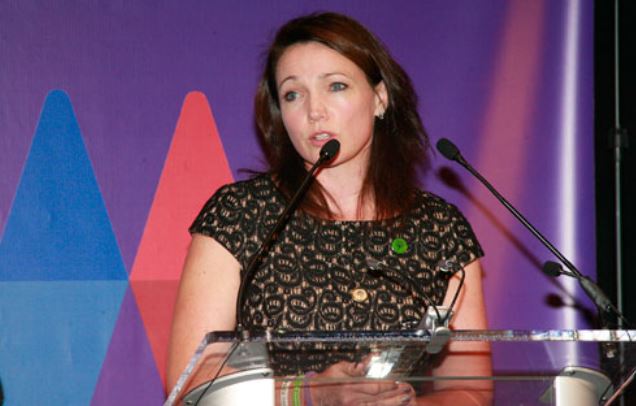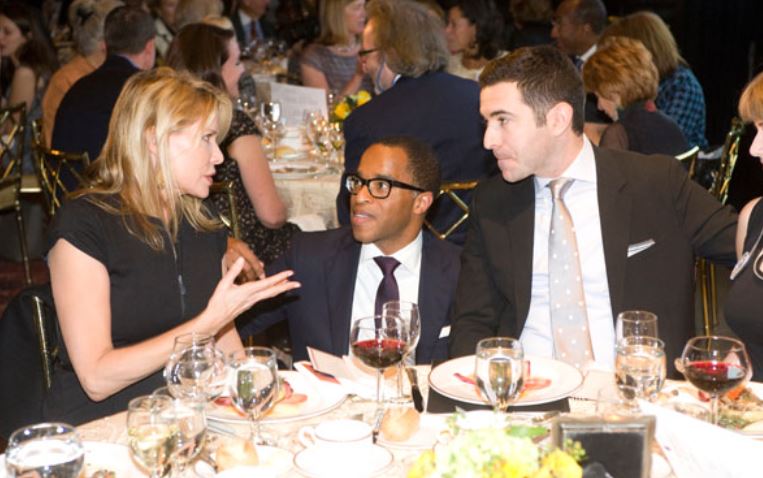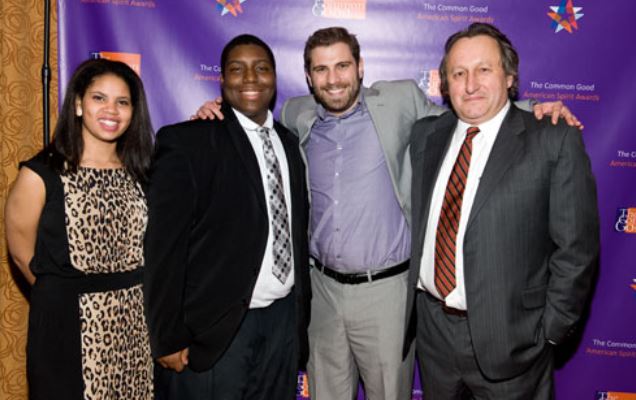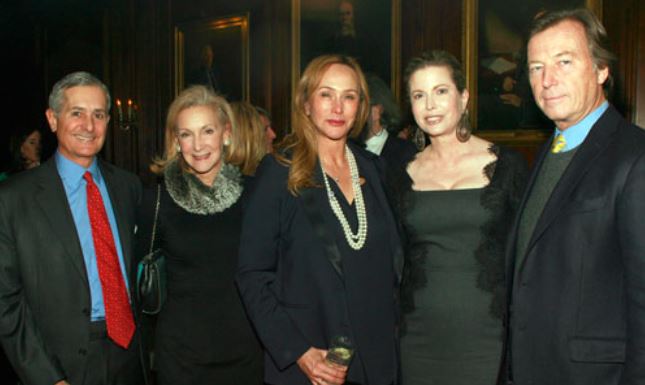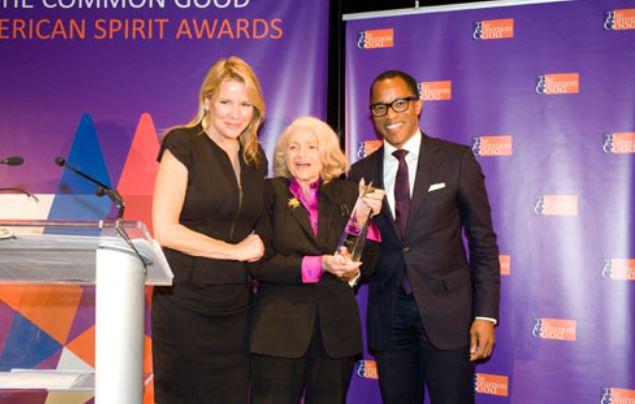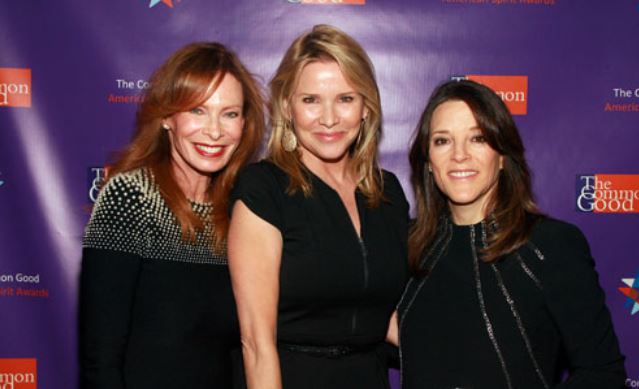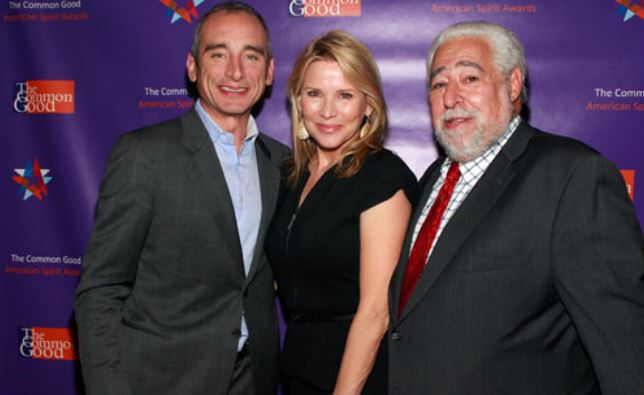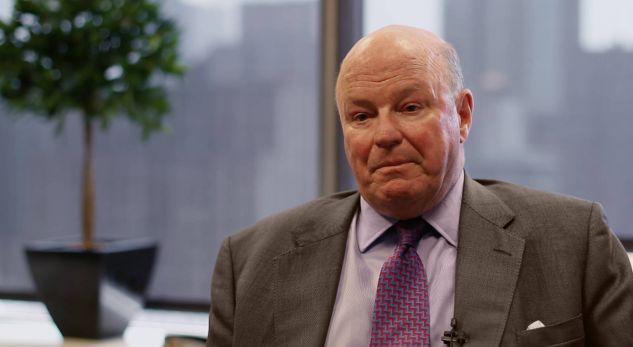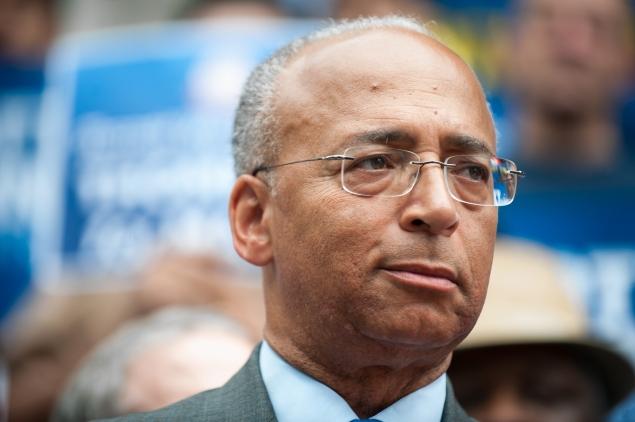
PAST EVENTS
Meet & Greet: Admiral William Fallon on U.S. Security
Secretary of Defense Robert Gates called him “one of the best strategic thinkers in uniform today”. Admiral William Fallon is known for his challenges to the war policies of the Bush-Cheney administration. His commitment to putting diplomacy first marked his career of 40 years as a leader to the U.S. military. The Common Good was thrilled to host Admiral William Fallon to brief us on U.S. national security needs at a time when the international climate is very unstable.
Secretary of Defense Robert Gates called him “one of the best strategic thinkers in uniform today”. Admiral William Fallon is known for his challenges to the war policies of the Bush-Cheney administration. His commitment to putting diplomacy first marked his career of 40 years as a leader to the U.S. military. The Common Good was thrilled to host Admiral William Fallon to brief us on U.S. national security needs at a time when the international climate is very unstable.
Four-star Admiral and Chairman of the cybersecurity company CounterTack William “Fox” Fallon was the first Navy officer to head U.S. Central Command. Former Secretary of Defense Robert Gates called him “one of the best strategic thinkers in uniform.” Adm. Fallon led US and Allied forces in eight separate commands at the highest levels of American government before retiring after 41 years of leadership. His advocacy of diplomatic and economic engagement as the preferred approach to resolving international disputes was the hallmark of his distinguished service.
Interested in attending future events?
Meet & Greet: Eric Schmidt, Executive Chairman of Google
The Common Good hosted one of today’s greatest business leaders, Executive Chairman of Google, Eric Schmidt.
The Common Good hosted one of today’s greatest business leaders, Executive Chairman of Google, Eric Schmidt.
Since joining Google in 2001, Eric Schmidt has helped grow the company from a Silicon Valley startup to a global leader in technology. As executive chairman, he is responsible for the external matters of Google: building partnerships and broader business relationships, government outreach and technology thought leadership, as well as advising the CEO and senior leadership on business and policy issues.
Interested in attending future events?
Jeremy Ben-Ami of J Street on Israel post U.S. Midterm Elections
The Common Good hosted J Street’s President and Founder, Jeremy Ben-Ami, on his analysis of their poll of Jewish Americans last week and what their findings mean for the President’s Middle East policies going forward.
The Common Good hosted J Street’s President and Founder, Jeremy Ben-Ami, on his analysis of their recent poll of Jewish Americans and what their findings mean for the President’s Middle East policies going forward.
Jeremy Ben-Ami is the founder and President of J Street, bringing to the role both deep experience in American politics and government and a passionate commitment to the state of Israel.
His political resume includes serving in the mid-1990’s as the Deputy Domestic Policy Advisor in the White House to President Bill Clinton and working on seven Presidential and numerous state and local campaigns. He was Howard Dean’s National Policy Director in 2004 and helped manage a Mayoral campaign in New York City in 2001.
Interested in attending future events?
Matt Taibbi on Corruption, Fraud and Inequality
Do flaws in our justice system drive inequality in the United States? Journalist and two-time New York Times bestselling author, Matt Taibbi revealed his findings as an advocate journalist for the stories kept hidden, those of corruption and fraud. We heard Taibbi’s ideas about what is threatening our justice system and the power wealth has to tip the balance, as published in his recent book The Divide: American Injustice in the Age of the Wealth Gap.
Do flaws in our justice system drive inequality in the United States? Journalist and two-time New York Times bestselling author, Matt Taibbi, revealed his findings as an advocate journalist for the stories kept hidden, those of corruption and fraud. We heard Taibbi’s ideas about what is threatening our justice system and the power wealth has to tip the balance, as published in his recent book The Divide: American Injustice in the Age of the Wealth Gap.
In The Divide, Matt Taibbi takes readers on a galvanizing journey through both sides of our new system of justice—the fun-house-mirror worlds of the untouchably wealthy and the criminalized poor. He uncovers the startling looting that preceded the financial collapse; a wild conspiracy of billionaire hedge fund managers to destroy a company through dirty tricks; and the story of a whistleblower who gets in the way of the largest banks in America. On the other side of The Divide, Taibbi takes us to the front lines of the immigrant dragnet; into the newly punitive welfare system which treats its beneficiaries as thieves; and deep inside the stop-and-frisk world, where standing in front of your own home has become an arrestable offense. As he narrates these incredible stories, he draws out and analyzes their common source: “a perverse new standard of justice, based on a radical, disturbing new vision of civil rights.”
Matt Taibbi is a multi-talented author and journalist who has covered politics, media, finance and sports, and in 2008 received a National Magazine Award for his columns in Rolling Stone. In February of 2014, he penned a goodbye in Rolling Stone magazine and moved to Glenn Greenwald’s First Look Media, where is he assembling a team of top-notch journalists and helping to launch a new magazine.
Interested in attending future events?
Midterm Elections Panel
The Common Good encouraged members to take a look beyond the numbers and the 24 hour news cycle for a dynamic and fascinating breakdown of the 2014 Elections with an incredible lineup of political experts: John Harwood, Patrick Caddell, Anna Greenberg, Carol E. Lee, Steve Kornacki, Jim McLaughlin, and Jefrey Pollock.
Democrats had to defend more seats in the Senate and the Republicans clearly had districting in their favor for the House. The Common Good encouraged members to take a look beyond the numbers and the 24 hour news cycle for a dynamic and fascinating breakdown of the 2014 Elections with an incredible lineup of political experts.
The moderator was John Harwood, Chief Washington correspondent for CNBC and political journalist for The New York Times.
The panelist included: Patrick Caddell, Former Presidential pollster and Fox News contributor; Anna Greenberg, AAPC’s 2014 ‘’Pollster of the Year’’; Carol E. Lee, White House correspondent for The Wall Street Journal in the Washington bureau; Steve Kornacki, Host of “Up with Steve Kornacki”; Jim McLaughlin, President of McLaughlin & Associates and a nationally recognized Republican political strategist; and Jefrey Pollock, President of Global Strategy Group, LLC (GSG).
Interested in attending future events?
John Micklethwait on Political Revolution
John Micklethwait, Editor-in-Chief of The Economist and acclaimed author lead The Common Good in discussion centered around his recently authored book, The Fourth Revolution.
The world is changing and new political and economic powerhouses are emerging overseas. With nations like China growing so quickly, now is the time for the U.S. to take a closer look at our long-standing methods in politics and ask the question, “Is business as usual sustainable?”
John Micklethwait, Editor-in-Chief of The Economist, lead The Common Good in a discussion centered around his recently authored book, The Fourth Revolution.
From the bestselling author of The Right Nation, an argument is proposed that our current crisis in government is nothing less than the fourth radical transition in the history of the nation-state. In fact, there have been three great revolutions in government in the history of the modern world. The West has led these revolutions, but now we are in the midst of a fourth revolution, and it is Western government that is in danger of being left behind. The West’s debt load is unsustainable. The developing world has harvested the low-hanging fruits. Industrialization has transformed all the peasant economies it had left to transform, and the toxic side effects of rapid developing world growth are adding to the bill. From Washington to Detroit, from Brasilia to New Delhi, there is a dual crisis of political legitimacy and political effectiveness. The Fourth Revolution crystallizes the scope of the crisis and points forward to our future.
John Micklethwait is the Editor-in-Chief of “The Economist”. After studying history at Magdalen College, Oxford, he worked as a banker at Chase Manhattan between 1985 and 1987 before joining The Economist as a finance correspondent in 1987. His previous roles at The Economist include being the newspaper’s Business editor and United States editor. The Economist now has a weekly print circulation of around 1.5 million worldwide, with 100,000 digital subscribers.
Interested in attending future events?
Evan Osnos On The New China
As China’s power and reach grows ever more rapidly; understanding this behemoth is critically important. The Common Good hosted a thoughtful discussion with Evan Osnos on China’s 35-year political and cultural transformation.
As China’s power and reach grows ever more rapidly, understanding the country is critically important. The Common Good hosted a thoughtful discussion with Evan Osnos on China’s 35-year political and cultural transformation.
Evan Osnos is a staff writer at The New Yorker, where he served as the China correspondent from 2008 to 2013. He is the winner of two Overseas Press Club awards and the Asia Society’s Osborn Elliott Prize for Excellence in Journalism on Asia. Previously, he worked at the Chicago Tribune, where he was part of a team that won the Pulitzer Prize for investigative reporting in 2008. He lives in Washington, D.C.
Interested in attending future events?
Political Journalism with Jill Abramson
Where has the real news gone? Jill Abramson shed light on that topic, the rapidly changing landscape of political journalism and why important events and voices of our voters and country are getting less news focus.
Where has the real news gone? Jill Abramson shed light on that topic, the rapidly changing landscape of political journalism, and why important events and voices of our voters and country are getting less news focus.
Jill Abramson was the first female executive editor in the paper’s 160-year history. Abramson joined the New York Times in 1997, working as the Washington bureau chief and managing editor before being named as executive editor. She previously worked for The Wall Street Journal as an investigative reporter and a deputy bureau chief. In 2012, she was ranked number five on Forbes list of most powerful women. She was also named as one of the 500 most powerful people in the world by Foreign Policy. Abramson held the position of New York Times Executive Editor from September 2011 to May 2014.
Interested in attending future events?
The Common Good Forum & The American Spirit Awards 2014
The Common Good honored individuals who have made exceptional contributions to democracy and changing the world with The American Spirit Awards: Arnon Milchan, Jose Antonio Vargas and Lilly Ledbetter.
As a nonprofit, nonpartisan organization, The Common Good honored individuals who have made exceptional contributions to democracy and changing the world with The American Spirit Awards. In 2014 the honorees included Arnon Milchan, the producer of 12 Years a Slave, reform activist and documentary film maker, Jose Antonio Vargas and Lilly Ledbetter, whose tireless pursuit of economic justice led to the landmark Lilly Ledbetter Fair Pay Act of 2009.
To present our honorees we had an array of program presenters including; Darren Aronofsky, five time academy award-nominated director, Jonathan Capehart, Pulitzer Prize-winning journalist, Maria Cuomo Cole, producer, director and political activist and finally, Soledad O’Brien, Emmy award-winning journalist.
Interested in attending future events?
Meet & Greet: Senator John Walsh
Incumbent Democratic Senator John Walsh was bidding for a second term in the Treasure State in the 2014 elections. Despite primary opposition and a Republican opponent who was polling 14 points ahead, Walsh counted on the appeal of his career in uniform, experience as lieutenant governor, and recent role as appointed Senator.
Incumbent Democratic Senator John Walsh was bidding for a second term in the Treasure State in the 2014 elections. Despite primary opposition and a Republican opponent who was polling 14 points ahead, Walsh counted on the appeal of his career in uniform, experience as lieutenant governor, and recent role as appointed Senator.
This race was considered one of the most important of the 2014 election cycle, as Republicans mounted an aggressive, well-funded campaign to reclaim a Senate seat they have not held in a century.
As a battalion commander, John Walsh led more than 700 men and women overseas to Iraq in the largest deployment of Montana National Guard soldiers and airmen since WWII. During his time as adjutant general, John championed the Yellow Ribbon program, an initiative that provides valuable resources to National Guard members and their families at all stages of their deployment and ensures Guard members get their well-earned services and benefits when they return home.
After 33 years of distinguished service, John retired from the National Guard and was elected by the people of Montana to the office of Lieutenant Governor, serving with Governor Steve Bullock. As Montana’s 30th Lieutenant Governor, Walsh fought to balance the budget, enact tax cuts for small businesses, invest in Montana’s schools, and toughen laws against child abuse.
Interested in attending future events?
Meet & Greet: NYPD Commissioner Bill Bratton
As the largest city in the United States, New York faces serious threats on a daily basis. New York Police Commissioner William J. Bratton spoke about a wide range of topics from the controversial Stop and Frisk, to terrorist scares, the head of the NYPD offered his expert insight on the state of our city—and its safety.
As the largest city in the United States, New York faces serious threats on a daily basis. New York Police Commissioner William J. Bratton spoke about a wide range of topics from the controversial Stop and Frisk to terrorist scares, and offered his expert insight on the state of our city—and its safety.
Commissioner Bratton established an international reputation for re-engineering police departments and fighting crime in the 1990’s. As Chief of the New York City Transit Police, Boston Police Commissioner, and in his first term as New York City Police Commissioner, he revitalized morale and cut crime in all three posts, achieving the largest crime declines in New York City’s history. At the NYPD in 1994 and 1995, he led the development of Compstat, the internationally acclaimed command accountability system now in use by police departments nationwide. As Los Angeles Police Chief from 2002 to 2009 and in a city known for its entrenched gang culture and youth violence, he brought crime to historically low levels, greatly improved race relations, and reached out to young people with a range of innovative police programs. He is the only person ever to lead the police agencies of the nation’s two largest cities.
Interested in attending future events?
The Civil Rights Act with Todd Purdum
On the fiftieth anniversary of the passage of the Civil Rights Act, acclaimed Vanity Fair and Politico journalist Todd Purdum released his new book “An Idea Whose Time Has Come”.
On the fiftieth anniversary of the passage of the Civil Rights Act, acclaimed Vanity Fair and Politico journalist Todd Purdum released his new book An Idea Whose Time Has Come.
Todd S. Purdum tells the story of the Civil Rights Act of 1964, recreating the legislative maneuvering and the larger-than-life characters who made its passage possible. From the Kennedy brothers to Lyndon Johnson, from Martin Luther King Jr. to Hubert Humphrey and Everett Dirksen, Purdum shows how these all-too-human figures managed, in just over a year, to create this bill. He evokes the high purpose and low dealings that marked the creation of this monumental law, drawing on extensive archival research and dozens of new interviews that bring to life this signal achievement in American history.
“An Idea Whose Time Has Come is brilliantly rendered and emotionally powerful – a riveting account of one of the most dramatic and significant moments in American history. The story Todd Purdum tells is absolutely mesmerizing.”
“Todd Purdum’s remarkable An Idea Whose Time Has Come brings back to life the historic fight waged on behalf of civil rights by JFK and LBJ. Purdum is a superb writer, never dull, and his grasp of the Sixties milieu is foolproof. This is a marvelous and much needed book of lasting importance.”
“Todd Purdum’s fascinating behind-the-scenes account of the birth of the Civil Rights Act of 1964 is a timely and hopeful reminder that sometimes the good guys do win, even in Washington.”
“odd Purdum brings alive Congress’s great historic achievement: the passage of the 1964 Civil Rights Act. The heroes are J.F.K. and L.B.J., but also those Midwest Republicans who stayed true to Lincoln. Those are the quietly eloquent stories here, the profiles in decency and guts, where members of Congress honored values greater than current popularity. An Idea Whose Time Has Come shows once again that the real action in American politics takes place in the back room – and in that quieter place: the beating hearts of the decent and courageous.”
Todd S. Purdum is senior writer at Politico and a contributing editor at Vanity Fair. He was formerly with The New York Times, where he worked for 23 years, covering politics from city hall to the White House, and also serving as diplomatic correspondent and Los Angeles bureau chief.
Interested in attending future events?
Exploring the Legacy of JFK: Citizenship and Public Service with Scott Reich
Fifty years after John F. Kennedy’s shocking and saddening death, our country is wrapped up in an era marked by political division, partisan bickering and cynicism. But attorney and author Scott Reich believes that Kennedy’s inspirational and timeless message of public service and active citizenship—values that The Common Good so proudly promotes—has a new resonance today.
Fifty years after John F. Kennedy’s shocking and saddening death, our country is wrapped up in an era marked by political division, partisan bickering and cynicism. But attorney and author Scott Reich believes that Kennedy’s inspirational and timeless message of public service and active citizenship—values that The Common Good so proudly promotes—has a new resonance today.
Scott D. Reich is a practicing attorney and in-house counsel at American Express. In 2010, he was appointed by the governor of New York to serve on the College Council of SUNY College at Old Westbury. Scott prides himself on his pro bono contributions, including work with the Brooklyn Family Court, the New York Legal Assistance Group, and Lincoln Center for the Performing Arts. He earned a B.A. in history and communication from the University of Pennsylvania and a J.D. from the University of Pennsylvania Law School, where he was president of his class.
Interested in attending future events?
The American Spirit Awards 2013
Nicole Hockley made us remember, David Gergen made us think – and laugh – and Edie Windsor inspired us at The Common Good American Spirit Awards. All of us at The Common Good want to thank all our Sponsors, guests, friends and supporters who helped make this night a huge success! With your help, we look forward to a bright future.
Nicole Hockley made us remember, David Gergen made us think – and laugh – and Edie Windsor inspired us at The Common Good American Spirit Awards. All of us at The Common Good want to thank all our Sponsors, guests, friends and supporters who helped make this night a huge success! With your help, we look forward to a bright future.
Nicole Hockley, whose son Dylan was killed at Sandy Hook Elementary in Newtown, Connecticut, was honored with the American Spirit Award for Citizen Activism for her outspoken support of common sense gun control and legislative success in Connecticut. In her introduction, former first lady of New York, Michelle Paige Paterson, noted that she and the members of Sandy Hook Promise want the tragedy they endured “to be remembered as the place where real change began.”
David Gergen, an adviser to four presidents and political analyst, took the stage after a warm introduction from Richard Wolffe, the executive editor of MSNBC.com and a fellow politico. Gergen talked about his hope for the future of American politics because of a rising generation of young leaders who are dedicated to service, but he also got the biggest laughs of the night by regaling the audience with anecdotes from his many years in Washington.
Jonathan Capehart of The Washington Post introduced marriage equality activist Edie Windsor, who closed the show with a celebratory message of perseverance, strength and love. Windsor, the plaintiff in the Supreme Court case that overturned the Defense of Marriage Act, talked about the significance of her court victory. Even with a partner she had lived with for most of her life, marriage mattered, Windsor said. And it matters for millions more.
Interested in attending future events?
All of us at The Common Good want to thank all our sponsors, guests, friends and supporters who helped make this night a huge success! With your help, we look forward to a bright future.
Climate Change and the Food Crisis with Environmentalist Lester Brown
President Obama announced executive actions in July to combat global climate change. Mayor Michael Bloomberg wants New York City to spend $20 billion to prepare for global warming-related dangers. The vast majority of climate scientists agree that human activity is contributing to changing climate, but polls still find large percentages of Americans don’t believe that climate change is real.
President Obama announced executive actions in July of 2013 to combat global climate change. Mayor Michael Bloomberg wants New York City to spend $20 billion to prepare for global warming-related dangers. The vast majority of climate scientists agree that human activity is contributing to changing climate, but polls still find large percentages of Americans don’t believe that climate change is real.
These concerns were answered by noted environmentalist Lester Brown at a luncheon.
Lester Brown started his career as a farmer, growing tomatoes in southern New Jersey with his younger brother during high school and college. Shortly after earning a degree in agricultural science from Rutgers University in 1955, he spent six months living in rural India where he became intimately familiar with the food/population issue. In 1959, Brown joined the U.S. Department of Agriculture’s Foreign Agricultural Service as an international analyst. In 1964, he became an adviser to Secretary of Agriculture Orville Freeman on foreign agricultural policy. In 1966, the Secretary appointed him Administrator of the department’s International Agricultural Development Service. In early 1969, he left government to help establish the Overseas Development Council.
Interested in attending future events?
Foreign Affairs Series: Egypt in Crisis with Ambassador Frank Wisner
The Common Good hosted Former U.S. Ambassador to Egypt Frank Wisner who offered his insider’s perspective on events in Egypt and American options to the political turmoil that had dominated Egypt since the ouster of President Hosni Mubarak in 2011 and led to a takeover of the government by the Egyptian military.
The Common Good hosted Former U.S. Ambassador to Egypt Frank Wisner, who offered an insider’s perspective on American options relating to the political turmoil that had dominated Egypt since the ouster of President Hosni Mubarak in 2011 and led to a takeover of the government by the Egyptian military.
Ambassador Frank G. Wisner’s diplomatic career spans four decades and eight American presidents. He served as ambassador to Zambia, Egypt, the Philippines, and India during his years in the State Department. Ambassador Wisner worked as a senior diplomat in Tunisia and Bangladesh before returning to Washington as Director of Plans and Management in the Bureau of Public Affairs. He joined the President’s Interagency Task Force on Indochina, the entity responsible for evacuating and settling nearly one million refugees and served as its Deputy Director. Later, as Director of the Office of Southern African Affairs, Frank Wisner worked closely with Secretary of State Henry Kissinger to launch negotiations with Zimbabwe and Namibia.
Interested in attending future events?
Foreign Affairs Series: Rethinking US Approaches to the Middle East with David Rohde
The Common Good hosted an important discussion with a highly respected journalist on how to get U.S. policy right in the Middle East. David Rohde has argued that U.S. military power in the region is limited, so that empowering civilian institutions may be the critical way forward for our foreign policy. Can Muslim moderates, not Americans, eradicate militancy? Rohde, led a discussion about how to make U.S. policy more effective in the region.
The Common Good hosted an important discussion with the highly respected journalist David Rohde on how to get U.S. policy “right” in the Middle East.
The winding down of the Iraq and Afghanistan wars has not ended U.S. and world interests in the Middle East. The civil war in Syria and a coup in Egypt have now further destabilized the rapidly changing region.
David Rohde has argued that U.S. military power in the region is limited, so that empowering civilian institutions may be the critical way forward for our foreign policy. Can Muslim moderates, not Americans, eradicate militancy? Rohde led a discussion about how to make U.S. policy more effective in the region.
David Rohde, winner of two Pulitzer Prizes in journalism, is a foreign affairs columnist for Reuters and The Atlantic. From 1996 to 2011, he worked as a reporter for The New York Times. He is the co-author of A Rope and a Prayer: A Kidnapping from Two Sides, written with his wife Kristen Mulvihill, and the author of Endgame: The Betrayal and Fall of Srebrenica. David won his first Pulitzer Prize in 1996 for a series of stories in The Christian Science Monitor that helped uncover the Srebrenica massacre in Bosnia. He won his second in 2009 as part of a team of New York Times reporters for their coverage of Afghanistan and Pakistan.
Interested in attending future events?
NYC Mayoral Candidate Series: Joseph Lhota
Joseph Lhota has spent years in the public and private sectors as a manager. He ran the MTA as chairman and CEO, and he served in Mayor Rudy Giuliani’s administration as budget director and deputy mayor. Lhota also helped run Cablevision and Madison Square Garden. He ran for the city’s top job, trying to stand out in a crowded field.
Joseph Lhota has spent years in the public and private sectors as a manager. He ran the MTA as chairman and CEO, and he served in Mayor Rudy Giuliani’s administration as budget director and deputy mayor. Lhota also helped run Cablevision and Madison Square Garden.
Lhota joined The Common Good for the latest edition of the 2013 NYC Mayoral Candidate Series.
Joseph Lhota, a Republican candidate for Mayor of New York City, has held a unique balance of leadership positions in both the public and private sectors. Joseph was an
integral part of Mayor Rudy Giuliani’s core management team. He was the City’s Budget Director in Mayor Giuliani’s first term and Deputy Mayor for Operations during the second term. In 2011 and 2012 Joe was Chairman and CEO of the Metropolitan Transportation Authority.
Prior to joining the Giuliani administration, Joseph was an investment banker for 15 years. He was an acknowledged leader in public finance and assisted in the financing of infrastructure projects throughout the United States. Following the Giuliani administration, Joe held executive positions in the Cablevision Systems Corporation and the Madison Square Garden Company.
Interested in attending future events?
NYC Mayoral Candidate Series: Bill Thompson
Bill Thompson lost a surprisingly close mayoral race to Michael Bloomberg in 2009. Now Thompson is back for another run for Gracie Mansion, hoping to emerge from the wide-open field as the Democratic nominee once again. With the support of the Teachers’ Union and years of private sector experience in addition to his long record as a public official, Thompson is tougher than ever.
Bill Thompson lost a surprisingly close mayoral race to Michael Bloomberg in 2009. Now Thompson is back for another run against Gracie Mansion, hoping to emerge from the wide-open field as the Democratic nominee once again. With the support of the Teachers’ Union and years of private sector experience in addition to his long record as a public official, Thompson is tougher than ever.
As Comptroller of New York City from 2002 through 2009, Bill Thompson was responsible for managing the finances of the nation’s largest municipality and supervised a staff of 700 professionals. Thompson was given the opportunity to run for a third term in 2009, but he chose to run for mayor instead. As the Democratic nominee, Bill came within just a few percentage points of beating Mayor Michael Bloomberg.
As the head of the Board of Education for five terms, he oversaw a school system with 1.1 million students and 130,000 employees. Thompson is also Chair of Governor Cuomo’s Minority- and Women-Owned Business Enterprise Team. In 2012, he stepped down as Chairman of the Hugh L. Carey Battery Park City Authority to focus on his campaign for mayor.
Interested in attending future events?
Rising Leaders: Power Breakfast with Congressman Joseph Kennedy III
The Common Good hosted Congressman Joseph Kennedy III for a power breakfast. The Massachusetts Democrat talked about his growing portfolio of legislation in the House of Representatives and his priorities for our country moving forward. He’s hard at work on everything from budget issues to civil rights, and has been busy promoting Science, Technology, Engineering and Mathematics (STEM) education, which is, as Joe puts it, “a vehicle not just for economic competitiveness abroad, but for economic opportunity at home.
The Common Good hosted Congressman Joseph Kennedy III for a power breakfast.
Joseph Kennedy won election to Congress last fall, but he’s already building an impressive record in Washington. He’s certainly a rising leader to watch — and to meet.
The Massachusetts Democrat talked about his growing portfolio of legislation in the House of Representatives and his priorities for our country moving forward. He’s hard at work on everything from budget issues to civil rights, and has been busy promoting Science, Technology, Engineering and Mathematics (STEM) education, which is, as Joe puts it, “a vehicle not just for economic competitiveness abroad, but for economic opportunity at home.”
Elected in November of 2012, Congressman Joe Kennedy III represents a diverse district that spans from the suburbs of Boston to the more industrial towns of Massachusetts’ South Coast.
Prior to seeking office, Kennedy served the Commonwealth of Massachusetts as an Assistant District Attorney in both the Middlesex County and Cape and Island’s District Attorneys’ Offices. A graduate of Harvard Law, he was an active member of the school’s Legal Aid Bureau – a pro-bono law firm that provided legal services to low-income families around Boston. During that time he also co-founded an after school program for at-risk youth in the Boston area with his wife, Lauren.
Interested in attending future events?
The Common Good has been hosting events since 2006 that cover important issues of today, highlighting speakers who have worked to bolster our democracy and can provide great insight on the issues that matter.













